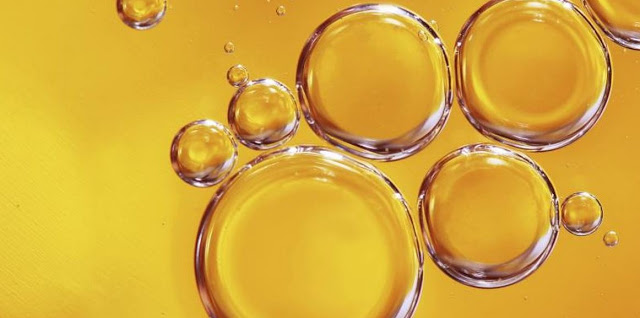

| Online: | |
| Visits: | |
| Stories: |
Canola oil: a chemical carcinogen that doesn't belong anywhere near your food
by Amy Goodrich
Natural News
We all have been trained by the government and food industry to believe that processed vegetable oils, such as canola oil, are healthy, and natural saturated fats coming from butter, lard, or coconut oil increase the risk of cancer, cardiovascular diseases, and obesity.
Though canola oil is marketed as a healthy oil, it is anything but healthy. It is a cheap, highly unstable, inflammatory oil that was given a huge push by trusted advisory groups and the government’s dietary guidelines.
For years we have been told by scientists, governments, nutritionists, and doctors to stop using saturated fats and use highly processed vegetable oils instead. Nonetheless, obesity, cardiovascular diseases, and cancer are still on the rise.
The problem with canola oil
Canola oil comes from highly toxic genetically modified rapeseeds. In the past, rapeseed oil was used in candles, soaps, lipsticks, lubricants, inks, biofuels, and even insecticides. Somehow this industrial oil found its way to our dinner table.
In 1956, however, the U.S. Food and Drug Administration (FDA) banned the use of rapeseed oil for human consumption due to the high levels of erucic acid. By the early seventies, rapeseed growers had found a way to genetically modify the seeds to produce an oil with reduced erucic acid.
The oil was reintroduced on the market under the name “Rape Oil” or “LEAR Oil” (Low Erucic Acid Rape), which was later changed to canola oil for marketing purposes. It was touted a wonder oil, low in unhealthy saturated fats and high in healthy omega-3 fatty acids.
While this GMO seed may have a lower erucic acid content, hybridization and genetic modification also increased the amount of oleic acid. Oleic acid has been linked to stunted growth, abnormalities in blood platelets, free radical damage, and an increased risk of several types of cancer.
The ugly truth about canola oil
Even today, despite the fact that heart disease and cancer continue to rise at an alarming rate while saturated fat consumption is down, people are still believing the hype and buying overly processed, toxic vegetable oils instead of natural fats such as coconut oil or organic grass-fed butter.
Here are the three top reasons why canola oil doesn’t belong anywhere near your mouth.
1. 90 percent of canola oil is genetically modified
While some people will argue that GMO foods will help us to address food shortages in the future, at the same time they are poisoning millions of people. The billion dollar GMO industry claims that their Frankenfoods are safe for human consumption, even though they have never been tested for long-term effects.
A 2011 review published in Environmental Studies Europe reported that mammals fed genetically modified foods for 90 days showed dramatically reduced kidney (43.5 percent) and liver (30.8 percent) functions. This study is only one of the many studies linking GMO food to increased health issues.
2. Canola oil is often used as a hydrogenated oil
Canola is a highly refined, processed oil. It undergoes degumming, bleaching, and deodorizing steps that usually involve high temperatures and toxic chemicals. Also, during the process harmful trans fatty acids are created which contribute to cardiovascular issues.
3. Canola oil is the main ingredient of “non-chemical” pesticides
Most GMO foods contain high levels of pesticide residues which have shown to cause many life-threatening issues. Furthermore, canola oil is an excellent pesticide on its own, hence its use as a key ingredient in many “non-chemical” pesticides.
Don’t let the food industry lure you into buying harmful vegetable oils that don’t belong on a kitchen table. They often focus their marketing strategies on the general belief that saturated fats cause high cholesterol levels and heart diseases, while their oils contain healthy monounsaturated fats and omega-3 fatty acids.
Article sources:
WiseMindHealthyBody.com
DrAxe.com
EnvEurope.SpringerOpen.com
Every Day is Earth Day
Source: http://feedproxy.google.com/~r/riseearth/KZKa/~3/0ojjZalYHO4/canola-oil-chemical-carcinogen-that.html




